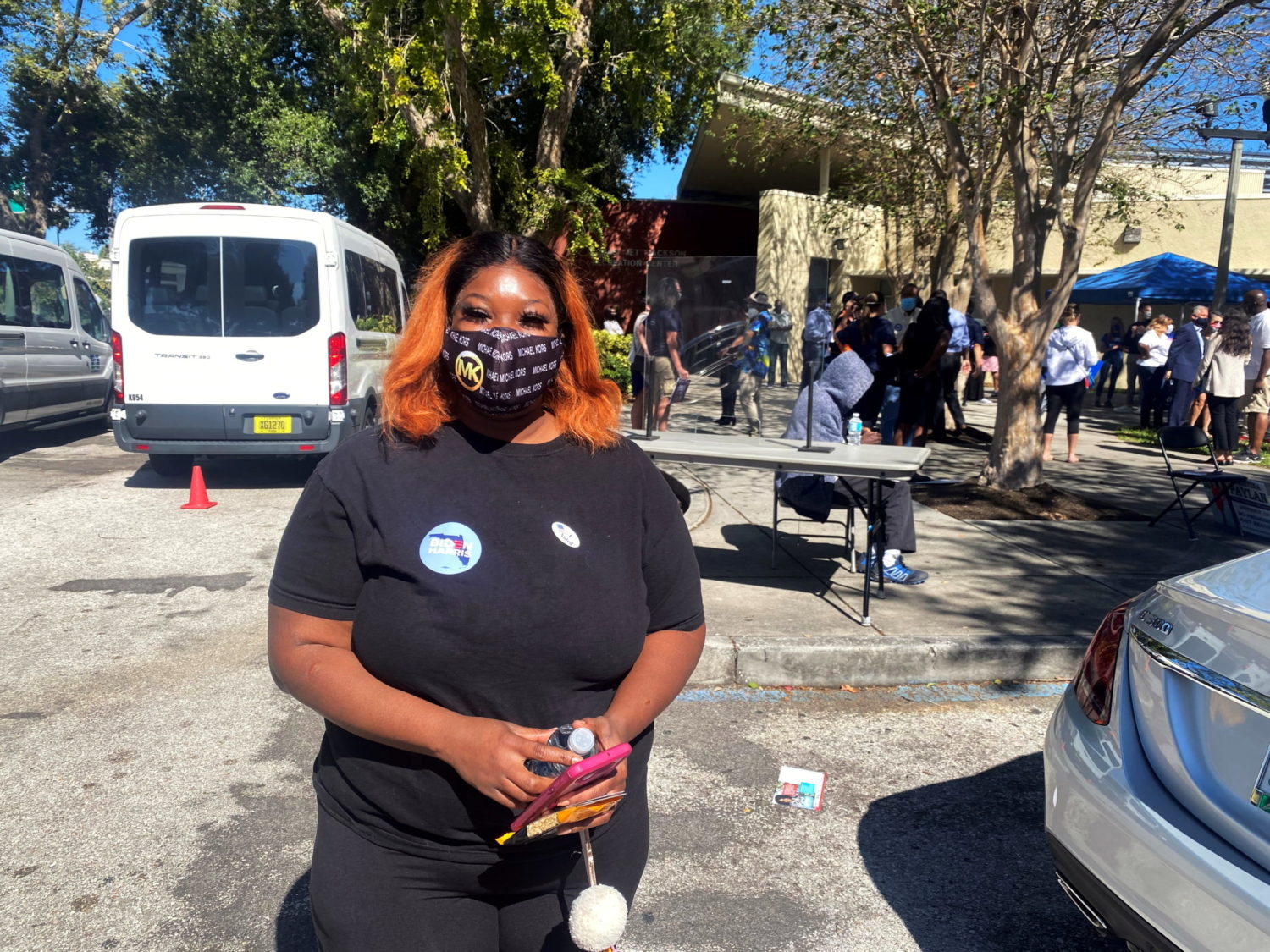
By Simon Lewis
ST. PETERSBURG, Florida (Reuters) – Shikila Calder, 32, thought about voting early this year, but decided to save her vote – the first of her life – for Election Day on Tuesday.
“It made it special. It was exhilarating,” said Calder, one of potentially thousands of people with past felony convictions voting in a general election for the first time this year, after their rights were restored in a 2018 referendum.
Under Florida law, Calder had been denied the right to vote owning to a conviction for which she served time and repaid her debt to society a decade ago, she said after voting at a community center in the city of St. Petersburg.
“I have my voice back,” she said, a beaming smile visible in spite of her face mask. “I’m welcomed back into my community as a person and I don’t have that big label on me as a bad person.”
An amendment to Florida’s constitution was to restore voting rights to an estimated 1.4 million felons in the battleground state, ahead of the crucial election between Republican President Donald Trump and Democratic nominee Joe Biden.
But far fewer former felons were voting on Tuesday after the Republican-led Florida Senate passed a law last year requiring that only those who had paid all legal fines, fees and restitution associated with their convictions could register to vote.
The law was challenged by voting rights groups, which argued the law disproportionately impacted African Americans, who are more likely than whites to have felony convictions and more likely to owe financial obligations.
The U.S. Supreme Court rebuffed the challenge in July, leaving the law in place.
Donors, including NBA star LeBron James and billionaire Michael Bloomberg, have been helping to pay off former felons’ fines so they could vote, but it is unclear how many were able to register ahead of Tuesday’s election.
The Florida Rights Restoration Council, a campaign group that fought for the constitutional amendment, was expected to release an estimate of how many were able to vote.
Calder, who is black, said she has paid all obligations related to her sentence.
She said she voted for Biden because she trusted former President Barack Obama’s vice president to improve education and tackle racism in America.
Since serving prison time, Calder has trained as a phlebotomist and works at a St. Petersburg hospital.
“I don’t regret my past because it made me who I am today,” she said.
(Reporting by Simon Lewis; Editing by Dan Grebler)







